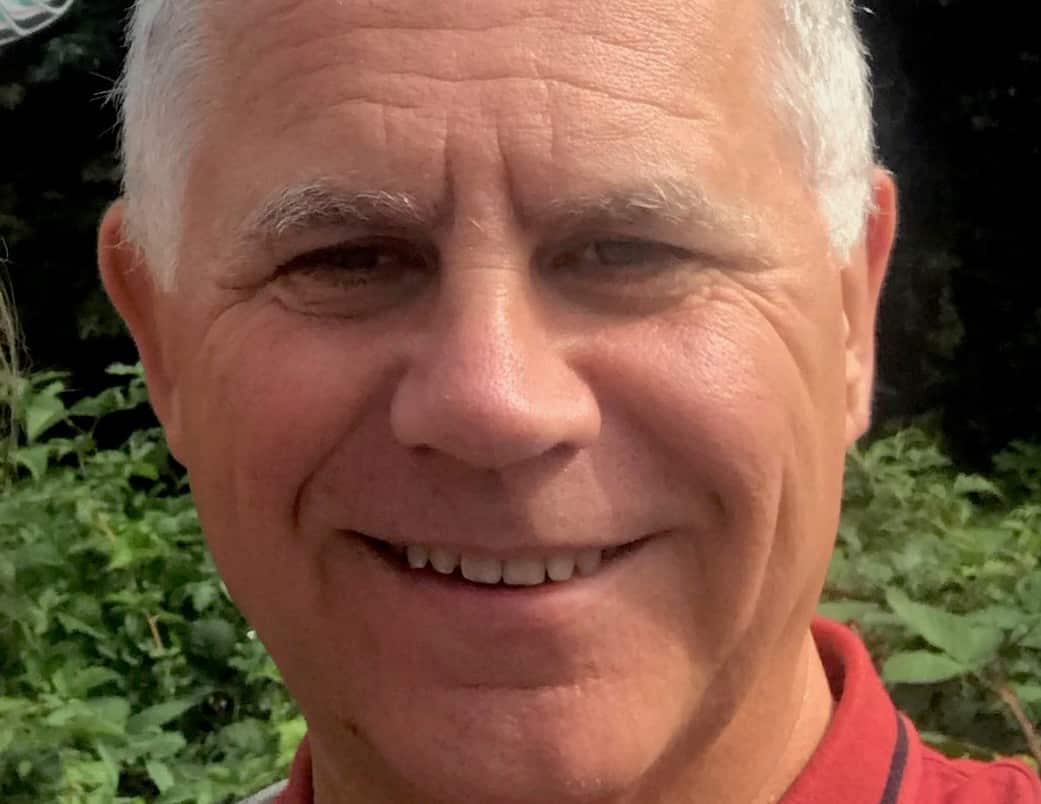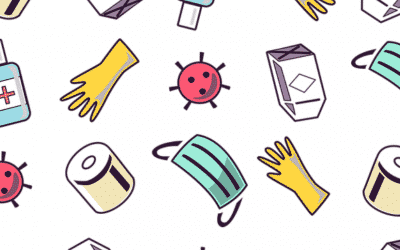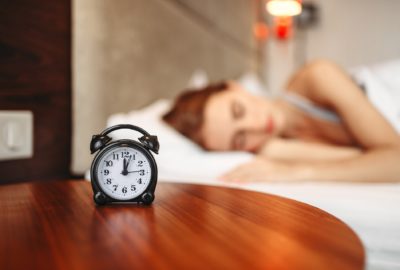Has lockdown made me bad at sleeping?
Wednesday 17th Mar 2021, 11.21am
We’re over a year into the coronavirus pandemic, and it’s affected our lives in many ways – including, for many of us, how we sleep. You may have experienced changes to your sleep pattern (particularly if you waved goodbye to your commute last March), your quality of sleep, or even had some very weird or vivid dreams! If so, you’re not alone. Join us as we chat to sleep expert Prof Colin Espie about his latest research, which looks at the impact of lockdown on sleep across 14 European countries.
Sleep Health Resources
Created by Professor Colin Espie, our guest on this episode of the Big Questions Podcast, Sleepio is a digital sleep improvement program clinically-proven to help overcome poor sleep and insomnia. Sleepio is backed by 12 Randomized Controlled Trials (RCTs) and already used by over 100,000 people in the UK to help improve their mental health. If you’re interested in trying Sleepio, all listeners can gain access at no cost using the code or links below:
All listeners can visit www.sleepio.com/ukredeem and use the code 1JHGJ8.
If you are an NHS England Staff member, please use this direct link:
Sleepio Access: https://www.england.nhs.uk/supporting-our-nhs-people/support-now/wellbeing-apps/sleepio/
If you are an NHS Scotland Staff member or Carer, please use this direct link:
Sleepio: sleepio.com/healthandcare-scot
YouTube video: Simple Tips for Better Sleep from Every Mind Matters
Emily Elias: I’m tired of this pando. I know we all are, but, if you’re anything like me, sleep has become a massive topic of conversation with just about anybody who will listen, but has lockdown actually affected our sleep, or is it all just talk? On this episode of the ‘Oxford Sparks Big Questions’ podcast, we’re asking: “Has lockdown made me bad at sleeping?”
Hello, I’m Emily Elias, and this is the show where we seek out the brightest minds at the University of Oxford and we ask them the big questions. For this one, we found a researcher who is very much awake and ready to take our questions about sleep.
Colin Espie: I’m Colin Espie, Professor of Sleep Medicine at the University of Oxford.
Emily: How have you been sleeping?
Colin: It’s interesting. Very often, I’m asked how I can sleep. I don’t think there’s any other health condition or concern that you would ever openly acknowledge. I think that tells us something about the importance of sleep: that it’s easy to talk about. It’s not a stigmatised topic. I sleep very well.
Emily: If you’re like me, you’ve probably noticed a change in your sleep since this lockdown stuff started. It’s a topic that comes up a lot, but is it just anecdotal? Colin, being the smart sleep researcher that he is, decided to take a closer look at this.
Colin: The great majority of people are reporting changes to their sleep pattern during lockdown, what’s getting close to a year now. The difficulties people are having are, really, three types. Difficulties with getting to sleep and remaining asleep are one thing.
I think the second thing is the pattern of our sleep is different to the way it would have been before, perhaps, because we’re not in the same working patterns and social patterns. I think the third thing that people are complaining about is vivid dreams, that their dreams are not necessarily nightmares, but more aware of dreaming and more content, perhaps, to their dreams than usual.
Emily: I’m all three. I’m so relieved that I’m not alone, but how do you actually go about designing a study to confirm what is actually happening?
Colin: We felt that what we should do is get together and conduct a study that properly quantifies the difficulties people are having with sleeping, and to look and see if they’re similar or different across countries. So, we took the responsibility, if you like, there of trying to put a scientific framework around the things that people had been reporting.
What we did, first of all, there was a group of 14 countries involved in this across Europe, the UK, but also Norway, and Austria, and Finland, Germany, France, people from North America, from Canada, from the States, and also people from Asia – for example, from Japan.
We had a conference call about this and designed a study that was based on instruments that we do use in research. They’re self-report measures, but the ones that have got some validation behind them. We decided we’d ask questions around how people were sleeping, how their sleep had changed since COVID. Also to ask general questions about their health and well-being, their mental health, and also to ask about whether or not they’d been infected and so on.
Emily: What did you guys find?
Colin: Perhaps it’s not a great surprise. We found that, indeed, there are these difficulties with sleeping, with getting to sleep, with remaining asleep, with changes to pattern in sleep. And that these are fairly consistent findings across the world, that everywhere people seem to be having difficulties maintaining a healthy sleep rhythm.
Now, of course, there are people who had sleep difficulties before. What we’re finding is that these difficulties seem to be getting, if anything, worse. There are people who didn’t have sleep difficulties before but have developed them during the pandemic. We would call these ‘incident cases’, new cases. Then there are a small number of people who are actually saying they’re sleeping better.
Emily: I know this was a survey of people sleeping, but do you have any clues as to why it might be the case that people are having a hard time turning off and going to bed?
Colin: We didn’t look at the cause-effect relationship. I think that’s difficult to do, but the kinds of evidence that we’ve been finding from other studies, and the things that we know about how insomnia develops in the first place, would suggest to us that there are several components to that.
One is the brain responds to threat. The brain responds to uncertainty, for example, as a threat. That is one of the things that people have been exposed to during this pandemic: “What’s happening? What’s going to happen? How will it affect me? When will it go away? Am I going to be okay?” One can think of that as anxiety or worry, but, when one takes that to the level of the brain, what we find is that the brain responds to threat and information like that by putting us on vigilant mode.
That means that it’s harder to sleep and that we spend more time trying to problem-solve. So, the emotional part of the brain that connects to the frontal part of the brain, what we call the ‘executive function’, which is the bit that tries to figure things out, it’s as if the brain is asking itself the question: “What’s going on here? What can I do about it? How can I resolve it?”
That leads to an overall hyper-arousal, and it’s difficult to down-regulate and to sleep. Or, if you’re waking up, you’re more likely to be on alert. We think that’s one of the causes of the difficulties we’re finding with sleep at the moment.
Emily: What about our ‘new normal’ lives? Has anything changed in that that has been affecting our sleep?
Colin: It’s really important to think about the relationship between our night-time and our daytime. Because our daytime lives have changed, we don’t necessarily need to go to bed at a certain time to get up at a certain time to get to our work, because we’re not travelling.
One of the things that we found in our study is that the changes in people’s day-to-day lives are also associated with the changes in their sleep pattern. What probably has happened is that people have gone to bed for longer periods of time than they would have done before, during lockdown, because you can do. You can go to bed earlier, or you can stay in bed for longer.
The effect of that is that the amount of time we spend sleeping in bed, as a proportion, drops. Suppose, typically, you were spending seven hours in bed and sleeping six, or six-and-a-half, your sleep would be quite efficient. You’re sleeping six or six-and-a-half hours out of seven, whereas if you’re now in bed for, say, eight hours and you’re sleeping six, your sleep efficiency is now six out of eight. It’s like 75%, so it has dropped some percentage points. What that means is you’re spending more time lying awake in bed.
So, the message from this is a good sleep pattern likes to be tight and consistent, that trying to go to bed for too long will lead to you sleeping more fragmented, in a more fragmented way. So, tightening up the boundaries of our sleep by not going to bed too early, and rising regularly every morning, seven days a week, at a time that enables us to get sufficient sleep, and not to try and sleep longer, would probably be the message from this because that protects good-quality sleep.
Emily: Okay. Another thing you mentioned was dreams. My dreams are crazy vivid right now. Like, last night I was in Winnipeg, cleaning ice-hockey rinks. Are you finding that this is the case with people sleeping in lockdown? It just feels like the dreams are weirder than normal.
Colin: Yes. I think that actually people have used that term: “My dreams are a bit more weird,” not necessarily scary, like nightmarish, but vivid. Maybe to understand dreams, we have to take a step back a little bit and think about what is going on during sleep? What is sleep for?
One of the functions of sleep is what we call ‘emotion regulation’. That is to do with the sorting out of our emotional state during the night. It’s as if the brain had a mind of its own, if you think of it like that. (Laughter) It would like sleep. The brain likes sleep. It’s maybe the state during which it can get stuff done because we are not so busy, and it can get on with all the important work that needs to be done. That’s to do with encoding of information, of memory, managing the emotions around those things, and helping us to be rested and fresh for the next day from a mental point of view.
I think what we see in dreaming is it’s as if we’re looking through a tiny crack in the doorway, into the night-time of sleep. We think, “Gosh, there’s a lot of busy stuff going on there.” It just gives us a sense it’s a lot of inflammation being processed. All we have of that is a little experience of a story that’s put together from our memory of things that have been collected just when we woke up there.
The content of our dreams, I don’t think, is so important to try and interpret. What is really important is to know that, during sleep, the brain is doing that important work. The fact that we’re more aware of our dreams is possibly just an insight into the fact that the brain is having to work hard to process all the emotion that has been going on in individuals and their families across the world during the pandemic.
Emily: You guys surveyed 14 different countries. Are there some countries that are just better at sleeping than others?
Colin: I think the most important finding is that there’s difficulty sleeping presenting everywhere. The variations that we observe in that may be to do with differences within and between countries. They may also be to do with just when the survey was taken.
We find that the UK, for example, comes out quite poorly from the survey in the sense that it seems like sleep pattern has changed quite a bit in the UK. People are finding it more difficult to get to sleep, more difficult to get back to sleep, and the timing of their sleep has been affected. That’s probably because when the survey was taken was probably closer to the peak of the lockdown than it was in some of the other countries.
So, we’re certainly not getting away with it in the UK. That’s for sure, but it’s also important, I think, for us to, maybe, consider the opportunity that research like this gives us to focus on something that is hugely important, that’s often overlooked or taken for granted, perhaps, and to say, “Okay, let’s consider how we’re addressing sleep, and sleep difficulties, in the same way as we’re thinking about how are we addressing our mental health, for example, during the pandemic? Let’s see if we can look after our sleep better and come out of this pandemic the better of it,” in the sense of having learned better how to deal with difficult situations in our lives.
Emily: Okay, I know you hate this question, but I have to ask it. As a nation of bad sleepers, do you have any tips that can just make us a tiny bit less terrible?
Colin: Yes, it’s a great question. Often, I’m asked tips about sleeping. It does irritate me a little bit to think about that we treat any important health thing about, “What’s your tip for managing your depression? What’s your tip for managing your heart attack?” It somehow it doesn’t feel quite right that we should take sleep so lightly.
If you think about it like this, often the things we hear about are drinking less coffee or that kind of thing. The whole animal kingdom sleeps. It’s not just human beings. I tell you, they don’t sleep well because they don’t use a smartphones or things in their bed, or because they limit the amount of coffee they drink. That’s largely irrelevant. What they do, and what good sleepers do, is they trust their sleep. It’s just an implicit thing that they don’t really think about it.
Good sleepers are not good at sleeping. It’s not as if they’ve got some kind of skill. It’s not as if they’ve got some kind of set of tricks. It’s not as if they’re good at walking a tightrope and they just manage to stay on it rather than fall off. They don’t even think about it. They trust it. Sleep happens to them. They don’t try to bring sleep on.
I think one of the things that we discover when we are having difficulties with our sleep is that it’s as if we don’t have a food supply, we don’t have a water supply. We get, “Gosh, I can’t sleep. I can’t sleep and so I’d better find a solution to this,” in the same way as if we had no food or I couldn’t breathe.
It sets up a reaction that leads us to try and solve it and fix it. Sometimes, that attempt to fix it actually makes it much, much worse because it puts us into a, kind of, panic mode about sleep when, in fact, the thing we can do is trust that sleep will come, and try and make sure we give it the right space again in our lives and let it happen spontaneously.
I know that’s easier said than done, but it’s a very, very important thing that psychology can interfere with what is essentially a biological process: sleeping, and waking, and sleeping, and waking. It’s not something that needs to be engineered by people. It’s something that needs to be trusted. Once we get into that frame of mind, we generally sleep well.
Emily: So, tonight, when you go to bed, trust your body that it knows what to do, and just hope that you don’t dream about Winnipeg. This podcast was brought to you by Oxford Sparks from the University of Oxford, with music by John Lyons and a special thanks to Professor Colin Esbie.
If you’re having problems sleeping, Colin has been working on a programme called ‘Sleepio’ that is clinically proven to help overcome poor sleep and insomnia. So, if you are interested in trying ‘Sleepio’, there’s a promo code in the show notes that you can use to access it. Now, don’t worry, it’s free. We all like free, don’t we? You can find us on the internet, at ‘Oxford Sparks’. Plus, we’ve got a website: oxfordsparks.ox.ac.uk. I’m Emily Elias. Bye for now.





